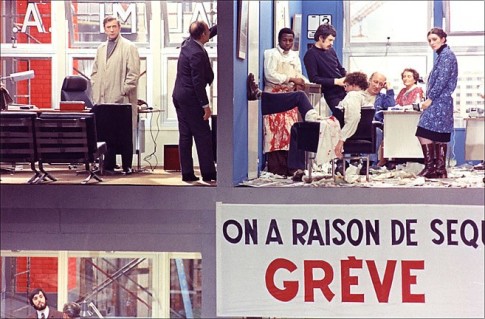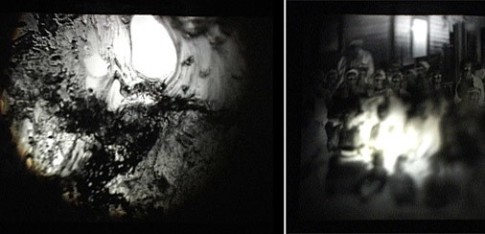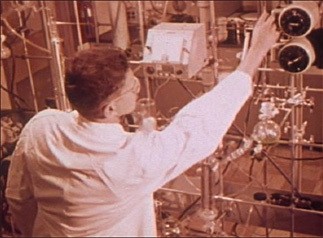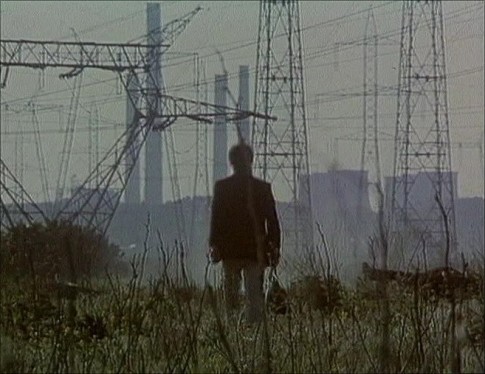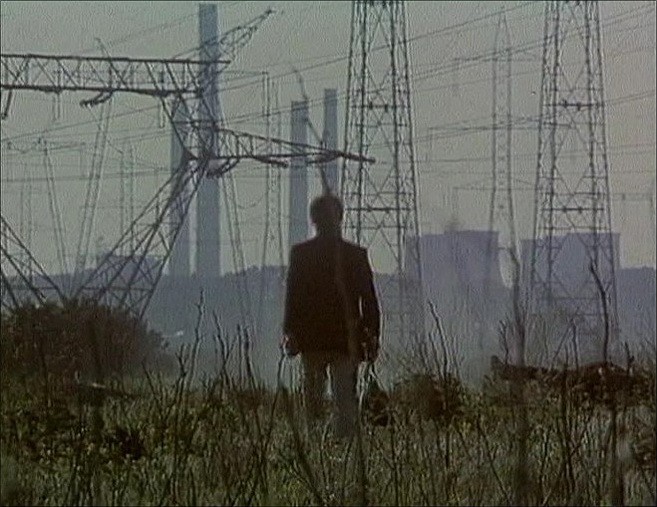
Florin Iepan, Ten Minutes with the Working Class (film still), 1994
Tuesday 16 November at 6 pm
The Cinema
Free admission
10 minutes with the working class
Introduction by Adina Bradeanu
“This factory is one of the last remaining places on Earth where one can still encounter a sample of Europe’s now extinct working class. If you have watched Spielberg’s film about those dinosaurs, then you know what I mean. This is our own version of Jurassic Park. Come and see for yourself!”
Florin Iepan’s 10 Minutes with the Working Class opens with this direct address to the viewer by a factory worker who acts as a guide and raisonneur throughout the film. 10 minutes… captures a final brief encounter between a film-maker and members of a ‘working class’ that is about to exit cinematic history, following the collapse of the political system that established and inspired the aesthetic vocabulary which featured the heroic industrial worker as one of its flagship ambassadors. The film is a both ironical and nostalgic commemoration of communist Romania’s industrial film tradition. In a set of absurdist tableaux set against the shell of a collapsing factory, real workers perform short sketches and monologues on topics ranging from poetry to romantic love and the meaning of life. Virtually nothing is said on the topic of work itself and, by that, the workers are finally freed from the decades-long, politically mandated pressure to live socially and politically purposeful (cinematic) lives.
Ten minutes was the conventional length of an industrial documentary in communist Romania. The title of the film references the naturalized perception of documentary film as a short film meant to be screened as ‘support’ to a main fiction film. It also comments on the frailty and superficiality of those brief encounters of the camera with the labouring body.
The programme tentatively raises a number of questions. How much do we know about the labourers of a now defunct political regime, if we try to take a distance from the torrent of past acts of representation and discursive construction? What can we hope to learn about the newly emerging working bodies of global capitalism if we approach them with a fresh perspective, beyond the conventional, social or observational, orthodoxies? The closing film of the programme also peers back at tradition by pointing to another iconic departure: The workers leaving the factory introduces the new spaces and patterns of work associated with today’s globalizing world, while referencing the early days of cinema history. The workers have reached the end of yet another day of their working lives. This time, the original Lumière factory has been substituted by a construction site in Dubai. The heroic labourers of Stalinism have already left the set for the archive. Enter the new, migrant worker of global capitalism, dragging the mantle of a new aesthetics and new symbolic geography. No more sweaty faces gleaming in black and white in the shadow of the furnace, but no less exploitation or alienation.
Adina Bradeanu
Films by international artists Eva Weber (United Kingdom), Ben Russell (USA) and Jorg Wagner (Germany ), and by Romanian film-makers Florin Iepan, Ovidiu Bose Pastina and Titus Mesaros. Duration: 90’

